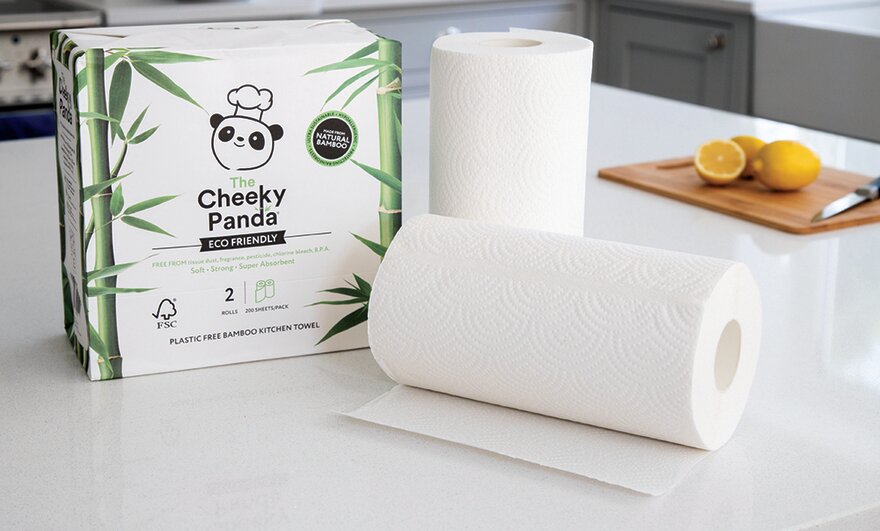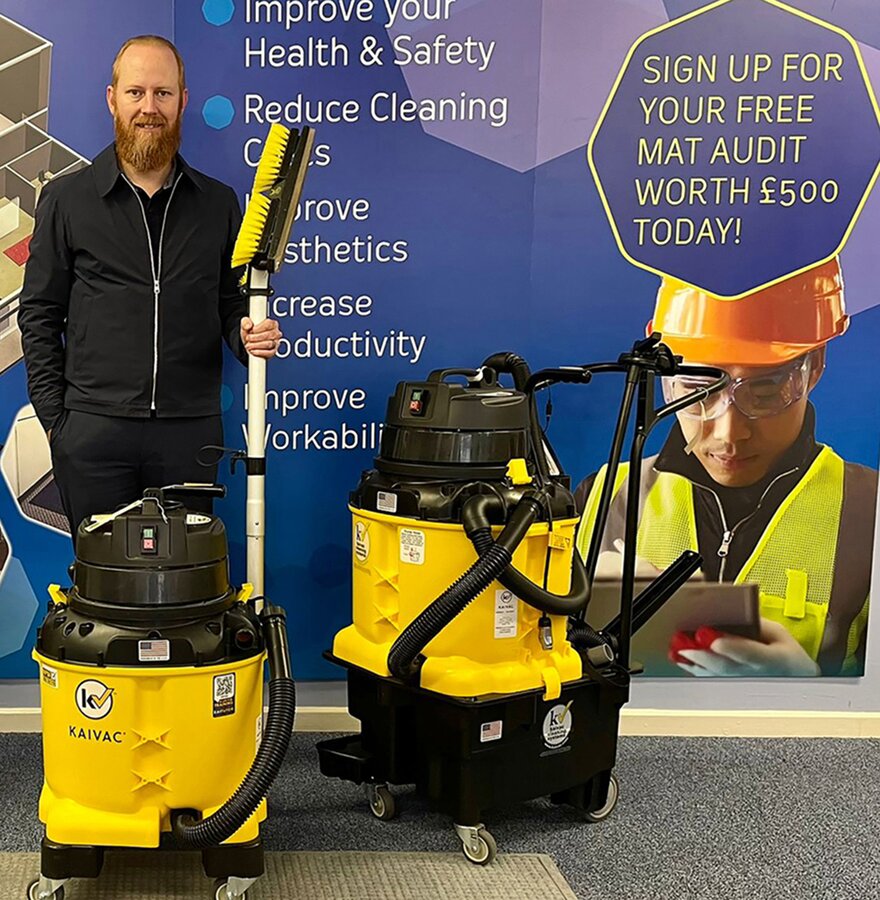Scrubbing away behind the scenes will no longer cut it. Guests want to know you're doing your bit with proper credentials
The cleanliness and hygiene of a catering operation has two important aspects – that you are clean, and that you are seen to be clean.
So how can operators display their cleanliness? And if being ‘seen to be clean' is important, how is it achieved? There is, of course, the Scores on the Doors scheme, where ratings are said to "provide clear data about hygiene standards". The website showing the ratings receives a high number of visitors, suggesting that consumers take the scheme seriously.
Caterers' opinions tend to vary. One beverage operator has said: "We get such positive comments from customers, I have come to regard it as a form of promotion." By contrast, others have alleged inconsistencies in assessment, one saying that the scores for him and his local competitors suggest either that public hygiene standards in his area are possibly the worst in the country, or that some inspectors judge more strictly than others.
But there are other badges of cleanliness – Winterhalter created its own stick-on labels during lockdown for establishments to show that its glassware was cleaned to high standards and the signs still remain popular, says the company. Another useful display can be the Rest Assured certificate, devised by the Textile Services Association, to verify that linens and towels have been hygienically cleaned.
Your choice of cleaning materials can send a message, says the Cheeky Panda group, which uses biodegradable bamboo fibre to make anti-bacterial wipes, paper towels, toilet rolls and similar items.
"Make sure branded disposable tissues and hand towels are available for all customers to use – they are more likely to use them if they are widely seen throughout the premises," says Chris Corsbie-Smith, the brand's hospitality lead. "To be seen to be clean, ensure that awareness posters are visible in key areas such as entrances, bar areas and toilets. Display a cleaning rota with these key areas marked up… and put the rotas up in places customers can see them."
And do say something, adds the brand: "It is perfectly easy to have a discreet notice on menus saying ‘our tables are cleaned with Cheeky Panda chemical-free, bio-degradable, anti-bacterial wipes'.
"We can provide a statement, such as: ‘we have switched to products from Cheeky Panda's sustainable bamboo range, which has allowed us to reduce our carbon footprint by however many kilos, and reduce the amount of plastic entering the waste system by so many kilos per year'."
Grease is the word
It is useful to display environmental awareness, agrees Nick Winstone, managing director at Biovate Hygienics: "Biotechnology is powering a new generation of eco-friendly products. Microbes, enzymes and naturally-derived plant extracts can get deep into porous surfaces to quickly break down and feed on grime, dirt and grease.
"This type of product is especially effective at cleaning wood, tiles and grouting and that scourge of weekend revellers, the sticky pub table. Unlike traditional chemical products, biotech-based formulas are made from sustainable, renewable ingredients that slash carbon emissions, are kinder to users, and don't harm aquatic eco-systems.
"Some of the most challenging odours in a catering operation can be combatted with biotechnology – odours from grease traps, pipes, drains, urinals and refuse areas can all be eliminated with bacteria-based products."
There has been big progress in this, says Erum Ahmed, sales director at BioHygiene: "At the start of the pandemic it became apparent that there would be an increased need for sanitisers and disinfectants. While most chemical manufacturers fell back on traditional ‘quat'-based chemical technology [quaternary ammonium compounds], BioHygiene recognised the need for a more sustainable sanitising solution.
"Nearly two years later, we have seen the damage that quat-based sanitisers have wrought in our workspaces, with smeared and sticky surfaces, and damage to surfaces as varnishes and polishes have been attacked. In designing a naturally-derived sanitiser, our goal was to ensure surfaces not only looked clean but also felt clean, without that sticky feeling.
"This is why technology is so important. Our all-purpose sanitiser makes use of sustainable biotechnology that leaves surfaces free from bacteria, and not sticky to the touch. Our kitchen cleaner and degreaser systems contain enzymes that break down odours and grease at source, which means that once the mop has been squeezed down the drain, odours are not released back into the catering environment."
Be seen to be clean
One of the legacies of the pandemic is a move to making cleaning a visible front-of-house routine, rather than something carried out behind the scenes and out of hours, observes Gordon McVean, director at Truvox International. "Seeing cleaning actually happening reassures customers."
Yes, you should be seen to be cleaning, agrees Natalie Stanton, founder of the Safety Expert consultancy: "An operator is seen to be clean by what front-of-house staff do – if a staff member only does a tiny squirt of sanitiser on a table and immediately wipes it off with a dirty cloth, customers notice."
Cleanliness can be demonstrated at your entrance, says Paul Tsalikis, chief executive of the Vanity group, arguing that hygiene products need not be uninteresting and utilitarian.
"We recommend a hygienic ‘welcome touchpoint' for guests. This can be a sanitisation station on entry, or take-home travel-size hand sanitiser bottles, and complete hygiene kits of face mask, mini hand sanitiser, and single-use wipes for conferences.
"Use a respected brand. Our lemon verbena hand sanitiser was one of the first luxury brands with such a product, and we've partnered with the likes of Merci Handy, who introduced designer, social media-led sanitisers – and made them trendy."
The first impression may be a dirty one, says Werner du Plessis, managing director at Rawlins: "If entrance mats are not properly cleaned, they actually help to spread dirt through the whole building. Many catering facilities managers choose to hire mats and have them changed on a weekly basis, but Rawlins' Mats 4 U offers a more environmentally friendly solution, and can be cleaned using hard-floor machines."
Kick up a stink
The sense of smell is the strongest of the five senses, and will set off alarm bells, notes Mark Wintle, marketing manager at P-Wave, so the most obvious place to be ‘seen to be clean' is the washroom.
"First impressions begin before people see anything – trust in the safety of a venue is negatively impacted if it smells bad. In all premises, to feel safe, consumers need to see and smell that the washroom is immaculate.
"P-Wave has been solving the most common hygiene issue in urinals for years – randomly splashed urine causes a bad smell and is a headache for your cleaners."
A reputation can stand or fall on the washrooms, agrees Dominic Ponniah, chief executive at Cleanology. "This is the only room in the building that staff and visitors are both likely to use, so an ineffective cleaning regime can bring disaster. Even high-profile restaurants are closed down for want of a regular deep-clean.
"Germs can be found in the most unlikely places, especially around electric hand dryers. Hands are sometimes not washed as well as they might be, and the air blows these droplets from hands to wall panels, taps, door handles and every other surface. Rubbing the hands together while drying them can release more bacteria. For this reason, we opt for paper towels."
But towels are inadequate, argues Dyson, which is a supporter of Global Handwashing Day: "Conventional hand-drying solutions are in need of an upgrade," says Dr Salomé Giao, Dyson's lead scientist.
According to Dyson's survey on washroom attitudes, 40% of consumers said the touch button on warm air dryers is a hygiene hazard, and 24% do not like the use of unfiltered, unclean air to dry hands. They were not concerned about paper towels as a hygiene problem. Dyson says its Airblade is 88% more eco-friendly than towels are, uses one seventh of the energy of other driers, has a touch-free control and very high efficiency air filters.
So, says Dyson, there is an opportunity to be seen to be clean by making washrooms a point of differentiation.
"There tend to be more high-touch hotspots than you might imagine," says Lisa Ackerley, director of medical and hygiene at Dettol. "These go beyond door handles and tabletops to items such as lift buttons, tablets used for ordering, condiments, menus, and in the toilets there are taps, flush handles, cubicle locks and door handles.
"A strategic placement of signage is a great way of displaying the importance that you are placing on hygiene. A message on the back of the toilet door may get viewed more than a sign by the washbasin, because someone avoiding washing their hands will walk by that.
"We find that with a bit of ingenuity, we can help make operators' messaging effective."
Suppliers
Biovate www.biovatehygienics.com
BioHygiene www.biohygiene.co.uk
Cheeky Panda uk.cheekypanda.com
Cleanology cleanology.com
Dettol www.dettol.co.uk
Dyson www.dyson.co.uk/en
P-Wave p-wave.co.uk
Rawlins www.rawlins.co.uk
The Safety Expert www.thesafetyexpert.co.uk
Truvox www.truvox.com
Vanity Group vanitygroup.com











